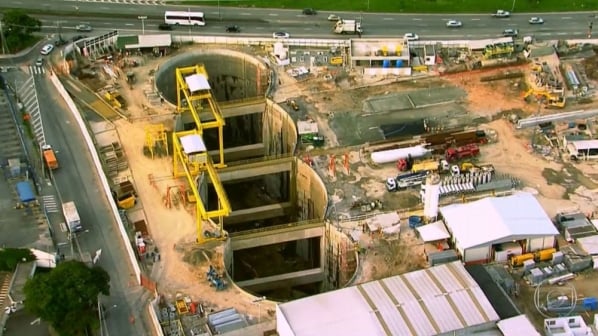Work on the 15km line started in April 2015, but was halted in August 2016 when some of the original contractors, including Odebrecht, Queiroz Galvão and UTC Engenharia, became embroiled in the Lava Jato (“Car Wash”) anti-corruption operation. The São Paulo government has been trying to terminate the contract with the Move São Paulo consortium since March 2018.
Acciona has completed negotiations with the companies to take over the PPP contract, and the São Paulo government will now conduct a detailed evaluation of the deal and assess Acciona’s technical capacity to complete the work and operate the line.
Line 6-Orange is only 15% complete and the civil works have already cost Reais 1.7bn ($US 409.3m) of which 41% has been funded by the state government and Reais 984m paid as expropriations. The total cost of the project is expected to be Reais 9.6bn, of which Reais 8.9bn was to be divided between the government and the consortium.
Construction is expected to last another four years, but it is still unclear when construction will resume. When the contract was originally signed in December 2013, it was estimated that the line would partially open in 2018.
Line 6-Orange will have 15 stations and will connect the northern neighbourhood of Brasilândia with São Joaquim, passing several educational institutions, earning it the nickname of the ‘university line’.
For detailed information on metro projects around the world, subscribe to IRJ Pro.

